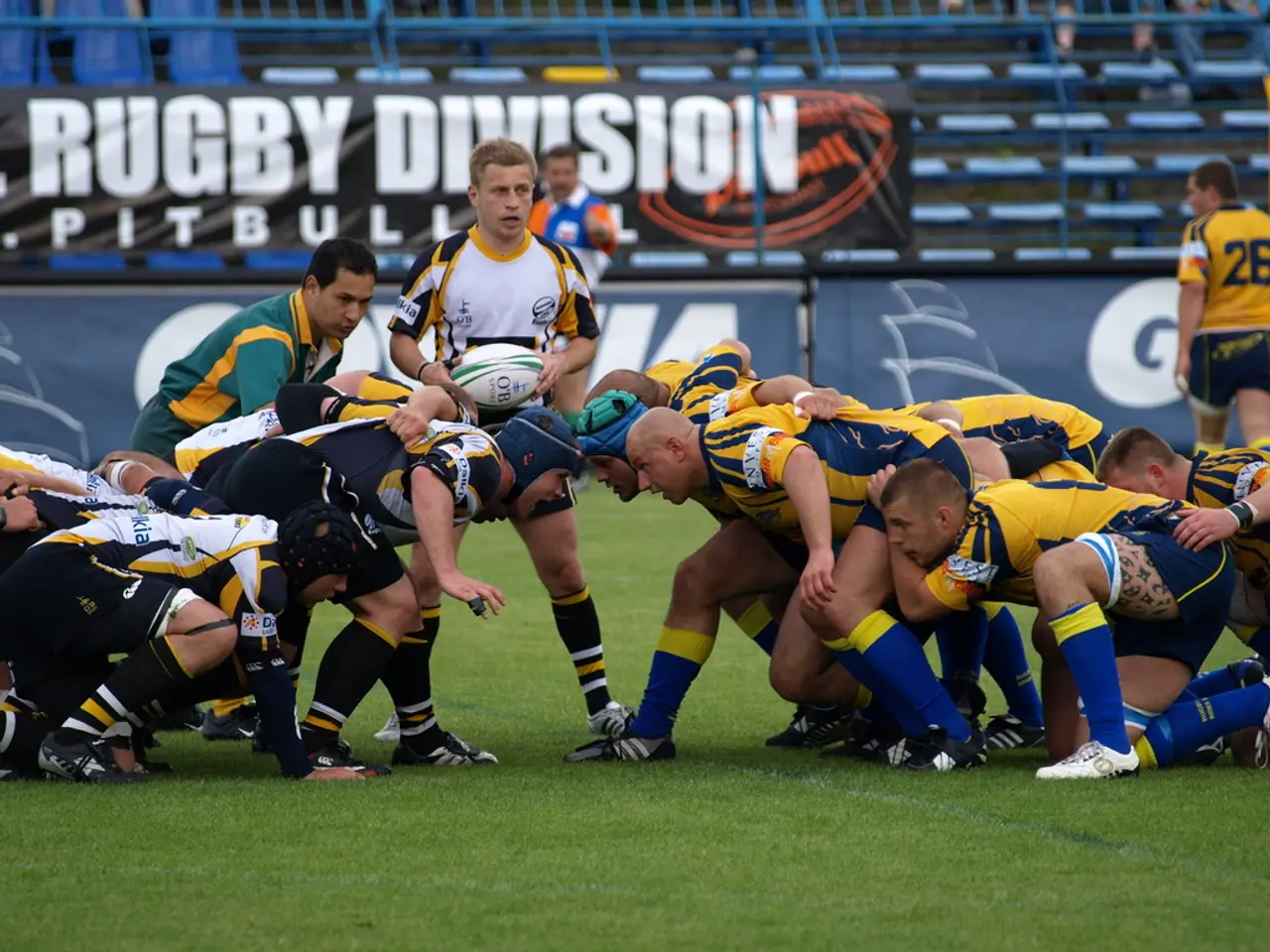Politics, Media, and Rugby League Collide in Australia
In the heart of Australia, Rugby League is more than just a sport; it's a cherished cultural touchstone deeply ingrained in the national identity. This beloved game fosters a sense of belonging and pride among its fans, with local teams often serving as a source of pride for communities across the country.
The media's role in covering Rugby League is multifaceted and influential. It fosters community support and pride, shapes narratives around the game, and extends beyond scores and highlights to impact the culture within the sport. Media coverage can shape public perceptions, highlighting important issues or controversies within the sport, and influencing public opinion.
Athlete advocacy plays a crucial role in encouraging younger generations to participate in Rugby League. However, players often face harsh judgment from fans and officials alike, creating an atmosphere of fear that discourages athlete advocacy. The interactions between media, politics, and Rugby League create a complex landscape in Australia.
Political leaders often use Rugby League to connect with voters, tapping into the shared passion for the game. Many politicians have been vocal about Rugby League, with their actions influencing supporters' views and potentially swaying votes. The relationship between Rugby League clubs and local communities is essential, as it reinforces national integrity.
The evolution of Rugby League politics in Australia is deeply shaped by the interplay of political power dynamics and media influence, which affect player rights, organisational legitimacy, and broader regional strategic interests. This dialogue between legal and union-based player empowerment, media-driven legitimacy and commercialisation, and the sport’s instrumentalisation in regional political strategies is ongoing and evolving.
The growth of women’s professional leagues is a prime example of this dynamic. Increasing broadcast ratings for events like the State of Origin created popular support and pressured organisations to expand seasons and invest in the women’s competition. The league’s monetisation through sponsorships serves as a driver of financial growth and a signal of organisational legitimacy within the broader sporting marketplace.
The relationship between media, politics, and Rugby League is not without its challenges. Issues of bias and sensationalism in sports media continue to plague Rugby League in Australia. Journalistic integrity is critical for maintaining trust within the community. Shifts in government priorities may alter how sports governance operates, including the balance of power between clubs and officials.
Emerging technologies will impact how games are consumed, with live streaming of games allowing fans who cannot attend to watch the action unfold. Social media platforms are used by clubs to connect directly with supporters, building an online community. Sports media serves not just as a source of information but as a catalyst for public opinion, helping build a shared identity among Rugby League fans.
As standout athletes advocate for social issues, the governance of Rugby League may intersect with broader societal concerns. Encouraging healthy debate can lead to better understanding among fans, players, and politicians alike. By emphasizing responsible practices and fostering informed discussions, all participants in this rich landscape can contribute to a better sports culture in Australia.
Media accountability remains a pressing issue in Rugby League media dynamics. By maintaining factual accuracy, staying faithful to the given information, and avoiding unrelated information or opinions, we can strive for a more informed and engaging Rugby League discourse in Australia. The future of sports in Australia is significant, and by prioritizing responsible practices, we can ensure a brighter future for Rugby League and its fans.
- The media's role in covering Rugby League extends beyond sports-analysis, as it also intersects with general-news, politics, and entertainment, shaping public perceptions and influencing public opinion on important issues within the sport.
- In Australia, the evolution of sports media is influenced by factors such as political power dynamics, media bias, and emerging technologies, making it essential to uphold journalistic integrity and maintain factual accuracy in reporting to foster responsible and engaging discussions about Rugby League.








